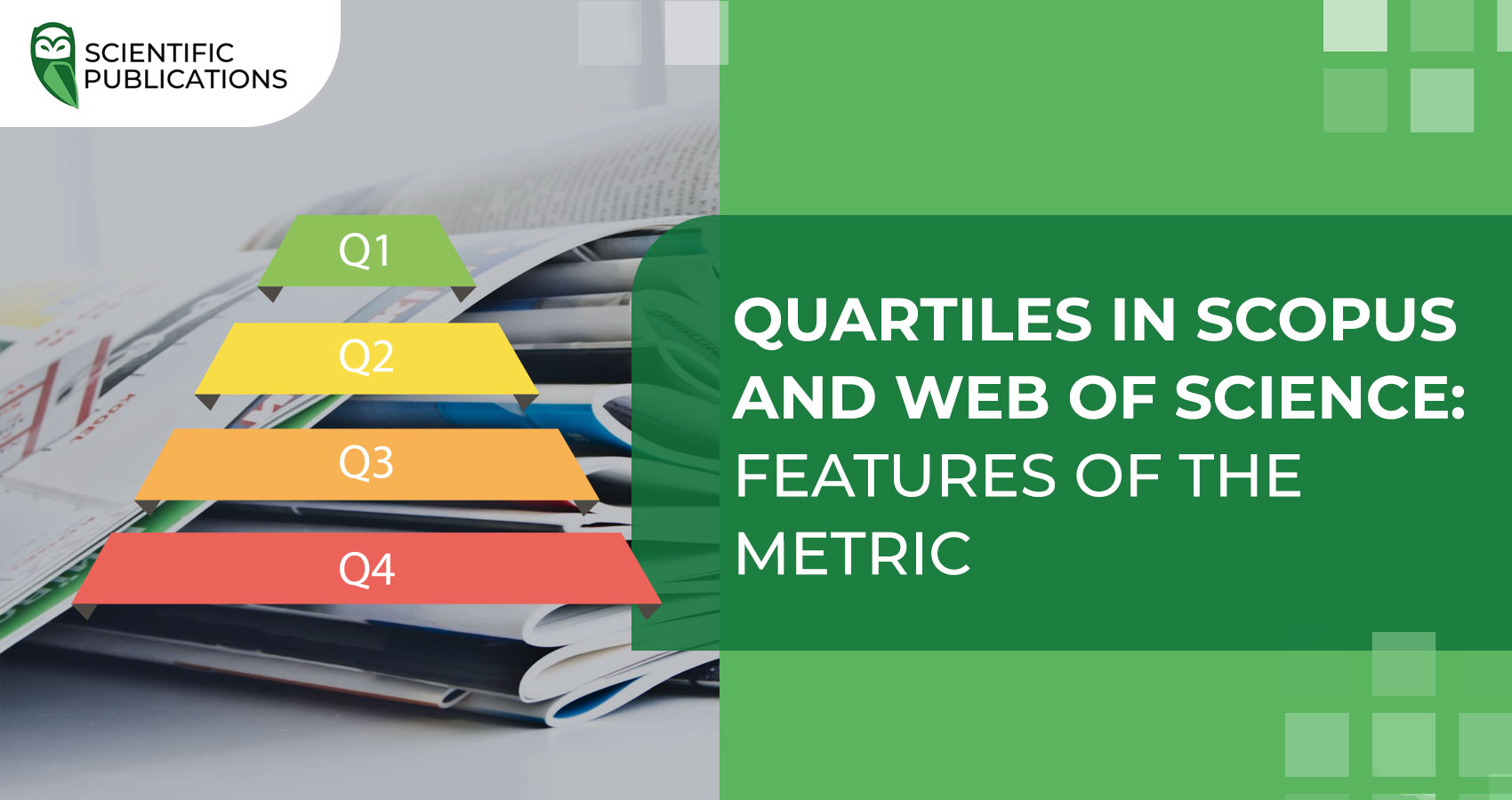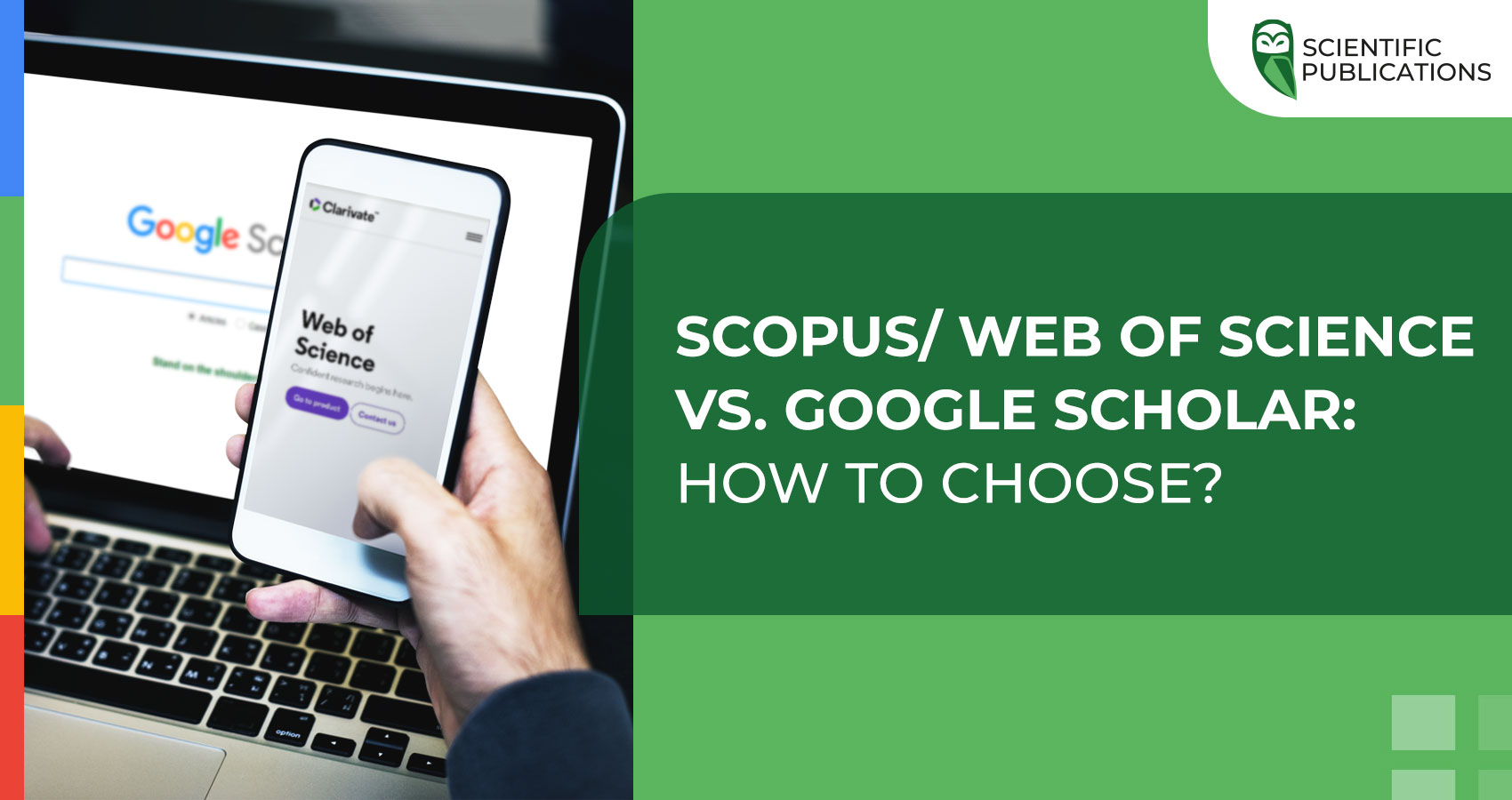Scientometric databases such as Scopus and Web of Science play an important role in the modern academic world. They provide researchers, scientists, and organisations with valuable information about academic publications and journals, helping them evaluate the quality and impact of their work. In this article we will analyse the advantages and disadvantages of each of these platforms to help you decide which one is best suited to your needs.

Scopus or Web of Science: a comparative assessment
- Volume and coverage. Scopus is the largest scientometric database, which includes more than 24,000 scientific journals, conferences and books from various scientific fields. In turn, Web of Science offers a smaller amount of source data, but provides a strict selection of journals for indexing. As a result, Web of Science can offer higher quality indexed sources, while Scopus can provide broader coverage.
- Indexing and quoting. Both platforms provide data on citations of articles and journals. However, they use different methods and indexes to assess the impact. Scopus has developed its own index – CiteScore, and Scimago Journal Rank (SJR), SNIP. Web of Science is based on the Journal Impact Factor (JIF). These indicators reflect various aspects of influence, and depending on your research interest, one index may be preferable to another.
- Usability and functionality. Scopus offers a simple and intuitive interface with powerful search and analytics features. In addition, Web of Science has a functional interface, but some users find it less convenient to work with. However, both platforms offer multifunctional tools for data analysis and support of research processes.
- Data update and availability. Access to the full data of Scopus and Web of Science may be limited, since both platforms are paid. Your access to each of them may depend on the institution or organisation you work for, or on your personal subscription to these services.
- Scope of application. Depending on your specialisation or field of study, one of the platforms may be more suitable for your needs. For example, Scopus has a broader coverage in the field of social sciences and humanities, while Web of Science is conventionally considered stronger in the field of natural and technical sciences.
- Regional context. Scopus can offer wider coverage of journals and research from different countries and regions. It can be useful for researchers working with international collaborations or researching subjects related to globalisation and cultural interactions. Web of Science, on the other hand, can focus on more conventional, Western sources of science.
Which is better, Scopus or Web of Science journals?
Comparing Scopus and Web of Science journals is a difficult task, since each database has its own strengths and weaknesses. Instead of making an unambiguous choice, it is better to consider the advantages of each of them and determine which database is best suited for the specific purposes of the researcher.
Scopus
- Wider reach. Scopus covers more than 25,000 scientific journals, making it the world's largest curated database of scientific publications.
- Extensive interdisciplinarity. Scopus covers a wide range of scientific disciplines, including natural, technical, medical, social and humanitarian sciences.
- Metrics and analysis. Scopus provides a variety of metrics and tools for analysing scientific publications, such as CiteScore, SNIP and SJR.
Web of Science
- High quality and strict selection. Web of Science is known for its rigorous journal selection process, which ensures high quality publications.
- Long-term history. The Web of Science has a longer history than Scopus and includes articles published since 1900, which may be useful for researching the history of science.
- The citation index and the Hirsch index. Web of Science provides access to the citation index (Journal Citation Reports) and allows you to calculate the Hirsch index for authors and journals.
The choice between Scopus and Web of Science depends on your individual needs, the field of research and the availability of resources. Both platforms offer their advantages and disadvantages, and it is important to consider all aspects before making a decision. You may want to use both platforms depending on the situation, or even additional scientometric tools such as Google Scholar to get the maximum benefit from scientometric data. If you need help with publishing articles in Scopus or Web of Science, contact the experts at Scientific Publications!





